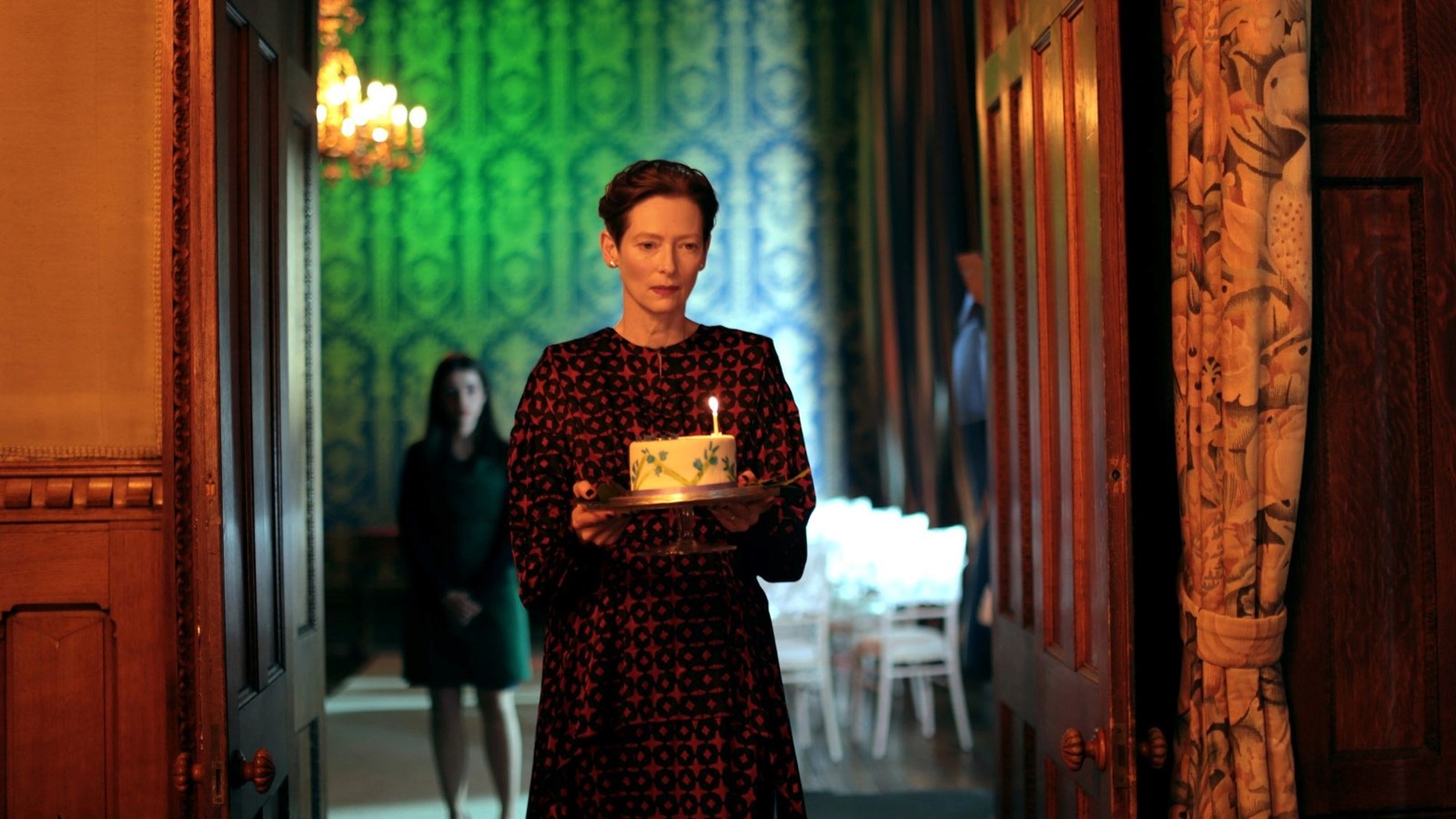Although Joanna Hogg insists that The Eternal Daughter is not a continuation of The Souvenir films, diehard fans will be able to spot the parallels. We first met Julie (Honor Swinton Byrne), the main character of The Souvenir and The Souvenir Part II, as a young filmmaker in 1980s London, awkwardly grappling with her burgeoning creativity and a tumultuous romantic relationship with a mysterious older man, Anthony (Tom Burke). Although Julie’s mother, Rosalind (played by Swinton Byrne’s real-life mother, a grey-haired Tilda Swinton), appeared in the film, she stayed firmly in the background, only as a spectral maternal figure. In The Eternal Daughter, she takes centre stage.
Taking place decades after The Souvenir films, The Eternal Daughter sees Julie (played by Swinton), now an established filmmaker, holidaying in a grand, spooky hotel in the British countryside with her elderly mother Rosalind (again played by Swinton, in a remarkable double act). If The Souvenir was a portrait of the artist as a young woman – ‘autofiction’ is an apt label for what Hogg refers to as her “intensely personal” set of films – then The Eternal Daughter is a portrait of the artist as a woman in middle age, although her preoccupations remain mostly the same (the creative process, intimacy, the self, the secret lives of others). Decades after her days as a bumbling film student, we can see that Julie has finally made it as a director; and indeed she has, since the character of Julie is a proxy, or a fictionalised stand-in, for Hogg herself, one of the most acclaimed arthouse filmmakers of our times.
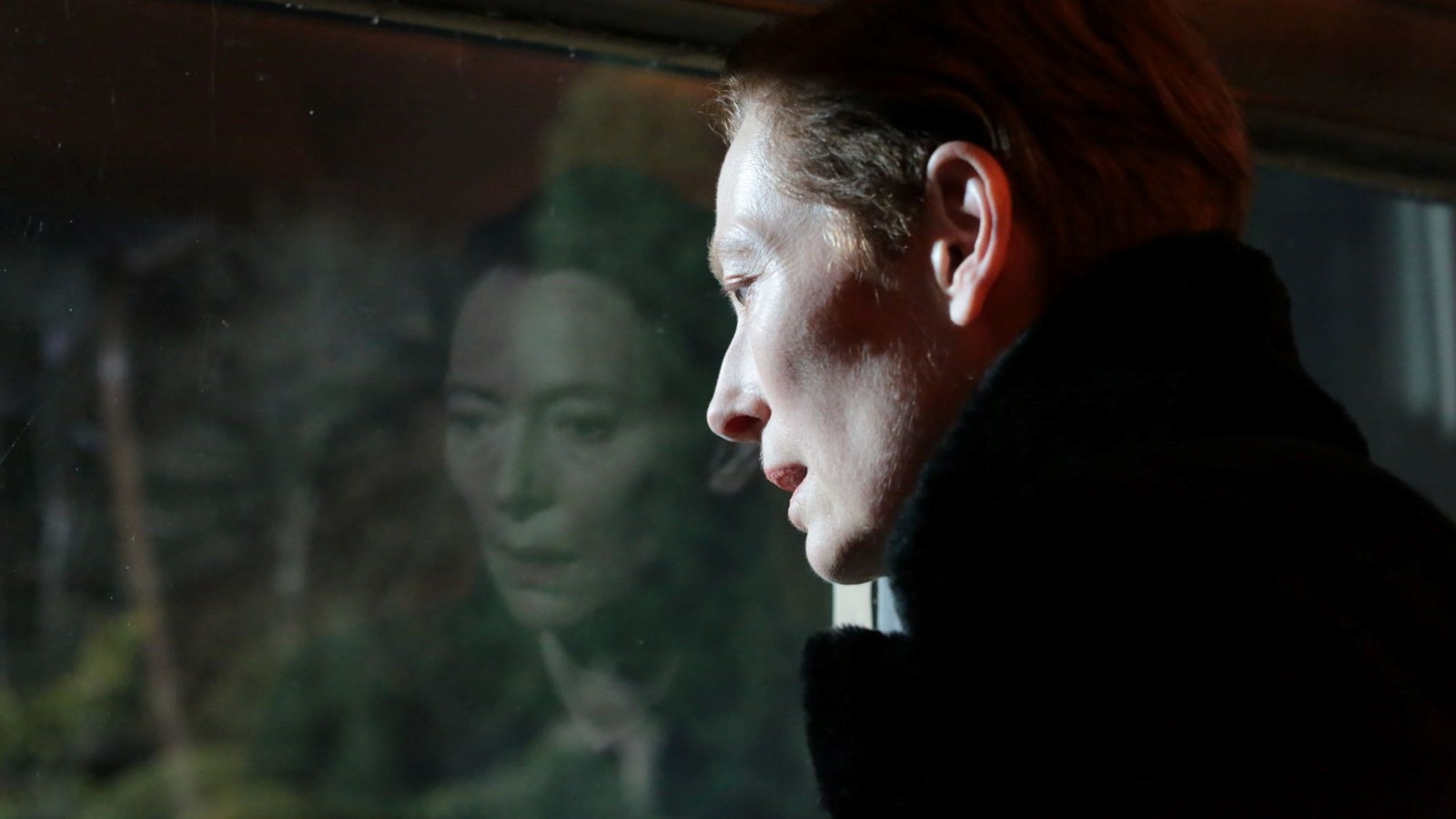
In a radical departure from the sparse naturalism of her previous films, The Eternal Daughter is first and foremost a ghost story, full of gothic suspense; in a spine-chilling turn, it’s never quite clear whether the character of Rosalind is real or merely a projection of Julie’s mind. But with an understated yet volcanic sense of emotion – Martin Scorsese, an executive producer on the film, once called her the characters in Hogg’s films “implosive“ – The Eternal Daughter is a haunting Trojan horse of a film about mothers and daughters, grief, and the intrinsic unknowability of the people closest to you.
And, just like her other work, it is as much tied to Hogg’s own biography as it is to the act of filmmaking itself – two interests she never tires of. The layers of meta in the work are supremely intricate, and at times confounding: The Souvenir was a film about Hogg as a young film student making her graduate film (the end of Part II even featured Hogg saying “cut“ as the camera panned out to reveal the crew in a giant film studio), while The Eternal Daughter is a self-portrait of Hogg writing the film that eventually becomes The Eternal Daughter. Swinton played opposite her real-life daughter, Swinton Byrne, in The Souvenir, and now plays both mother and daughter in The Eternal Daughter, taking the truism “we all become our mothers“ to new heights. Plus, there’s the fact that Swinton and Hogg have been friends since childhood, and who better to play you in a film about your own life than your best friend? Of her directorial style, Hogg says today: “I go very deep, deeply into my subjects and stories, and if I haven’t had some feeling of it directly myself, then I find it very hard to access.“
Below, Joanna Hogg spoke to AnOther about the making of The Eternal Daughter, and her “intensely personal” autobiographical filmmaking.
Violet Conroy: How did The Eternal Daughter first start in your mind?
Joanna Hogg: It was a long time ago. After I made my first film, Unrelated, I was wondering what to do next. I was always interested in doing something about my family, particularly about the relationship between myself and my mother, and I wrote a version of it then. We were all ready to go ahead, and then I just felt like I wasn’t ready to do it. My mother was alive at the time and I didn’t think I could face her with this work that seemed so personal to myself and to her. And much like Julie in the eventual film, I felt very guilty, like I was trespassing on her life. So I put it aside and I made Archipelago, then Exhibition, then The Souvenirs, and then it emerged again.
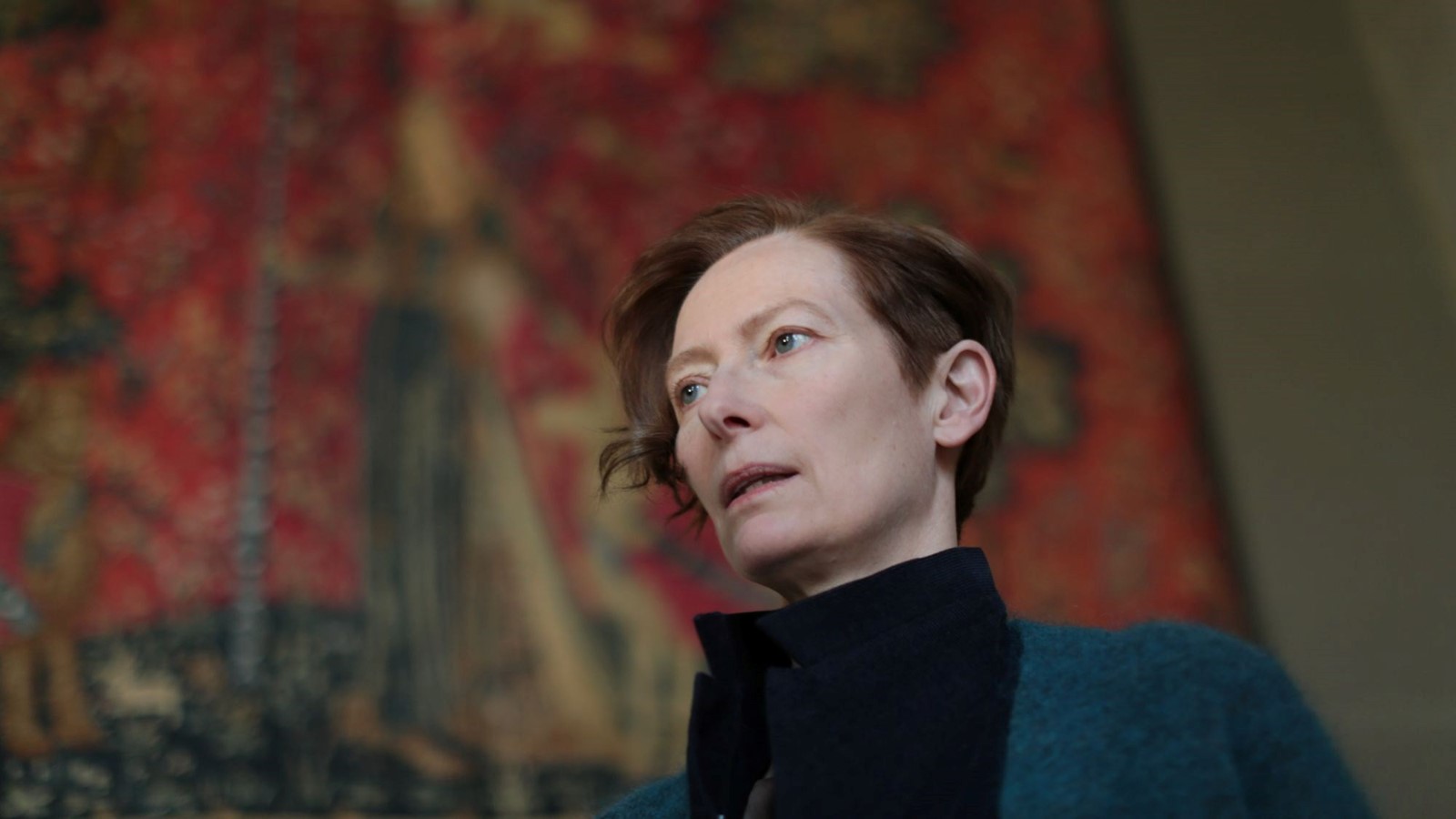
VC: And how did it end up being about Julie and Rosalind (from The Souvenir films)?
JH: That came a lot later, when I was working out what to call the characters. I had some names when I originally wrote it in 2008, but those names didn’t feel right anymore. Around the same time as I was turning it into a ghost story, I thought of Julie and Rosalind at a later point in their lives. Those names just felt right, and it was really just about the names. It wasn’t that I was making a third part of The Souvenirs; I wasn’t connecting it in terms of story at all. And in some ways now, when people perceive it as an ongoing universe, I wonder whether that was the right decision.
But nevertheless, it led to Tilda playing both parts, which of course all made sense because she played Rosalind at a younger age in The Souvenirs, so it all connected up. Turning it into a ghost story helped me distance it from my relationship with my mother – it helped make it less intensely personal.
VC: Why did you want to make a film about your own mother in the first place?
JH: I was always drawn to working on material that I knew very intimately. And I was always inspired by [Roberto] Rossellini, who was making films like Stromboli. He once said, and I’m not quoting exactly, but he said something along the lines of: “I have a need to draw directly from my own life. And whatever is going on in my life at a particular time, then that becomes a film.” So that idea of experiencing something in the present moment, and then turning that into something creative, was really inspiring to me.
“I go very deep into my subjects and stories, and if I haven’t had some feeling of it directly myself, then I find it very hard to access” – Joanna Hogg
VC: Is autofiction a good label for your work?
JH: I mean, it’s nice. But I don’t know if I can label what I do, because I’m always looking ahead and looking to the future in new work. It feels dangerous to put some stamp on that. And maybe what I do next isn’t related to my own life. I’m always looking to actually move away from myself. [Laughs]. But I continually come back to ideas and stories that have a strong connection, just because of the nature of the way that I work. I go very deep into my subjects and stories, and if I haven’t had some feeling of it directly myself, then I find it very hard to access.
VC: Both The Souvenir films and The Eternal Daughter deal with grief and death, and also with this idea of haunting. Do you think of filmmaking as a kind of exorcism?
JH: Yes, I have thought about that, and I had the misconception that making The Eternal Daughter would help me with the experience of losing my mother when she eventually died. I found that, of course, it was a very different experience. It couldn’t prepare me for what I felt after she departed. I don’t know, maybe there was some aspect of the rehearsal that helped. But my conclusion was that, as much as I want my work to be cathartic on some level, I’m not sure if that’s possible.
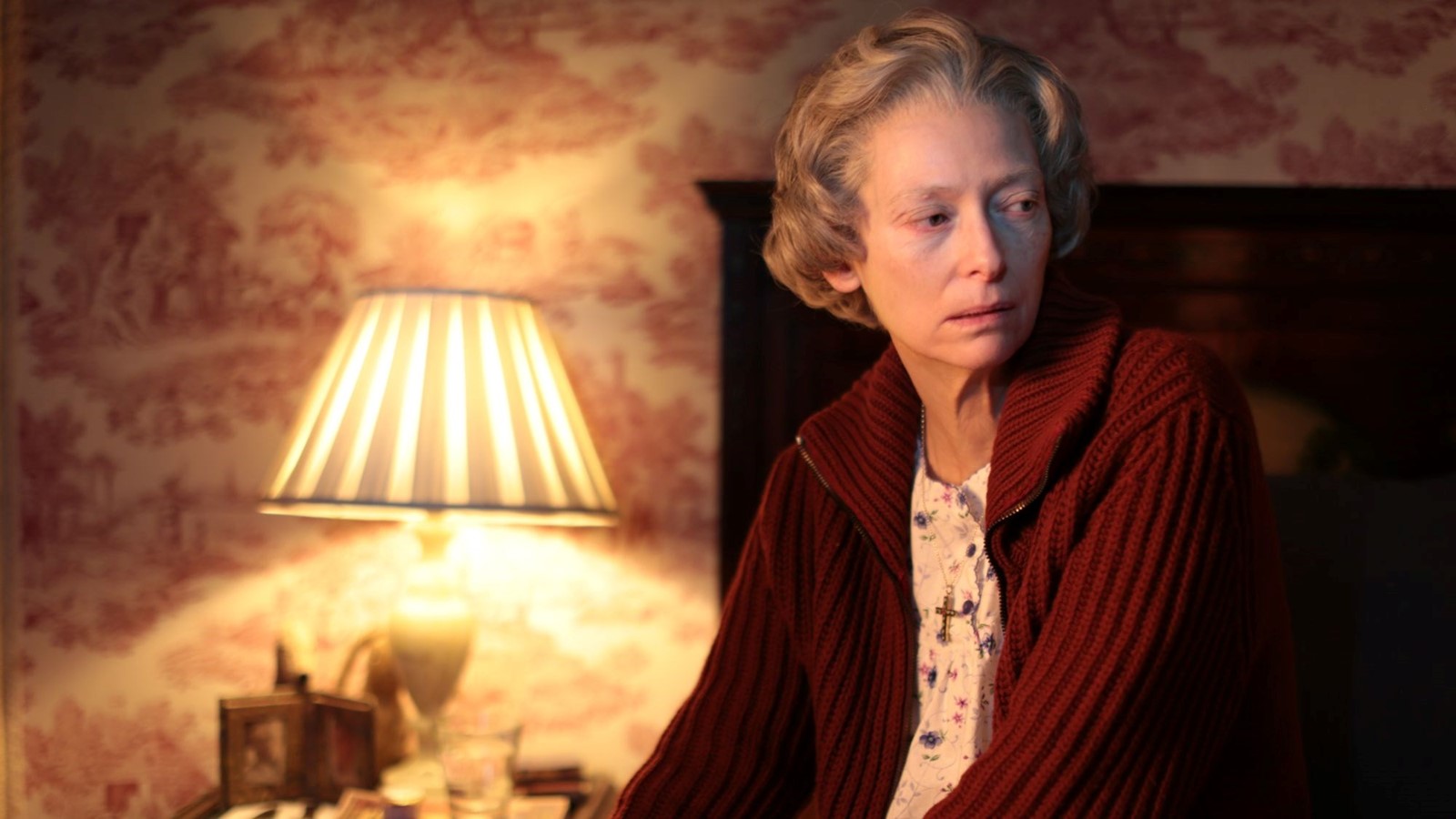
VC: In your films, there’s always such a strong sense of place, whether it’s Julie’s apartment in The Souvenir, or the hotel in The Eternal Daughter where Rosalind spent time during the war. How do you think about the relationship between spaces and memory?
JH: It’s fundamental to my life and therefore to my work. With all the films, they’ve more or less started with a place before I’ve peopled those places. In my life, I’m just very taken by the atmosphere of houses. The sense of the past that those places have … just rooms, doorways and corridors, I’m really inspired by.
VC: What was the atmosphere of the mansion like in The Eternal Daughter?
JH: It was quite spooky and quite interesting. Because of the open-ended way that I work, staying there – I made myself stay there during the shoot, even though it’s quite a frightening place to be at night, because I suspected it would bring a lot of ideas – it didn’t bring a lot of sleep, but it brought some ideas.
VC: Clothes played an important role in The Souvenir films. Were they also important in The Eternal Daughter?
JH: In the birthday scene in The Eternal Daughter, Rosalind is wearing the dress she wore for Julie’s birthday in The Souvenir, and Julie is wearing her dress. From a wardrobe point of view, it just seemed a perfect scene for that to occur. Tilda wore some of her own clothes and some of her mother’s clothes. I’m not sure if any of my clothes came into The Eternal Daughter, but they did with The Souvenir, so I had very early Vivienne Westwood clothes that Julie wears at the beginning of the film, and then a lot of the clothes in The Souvenir Part II were inspired by Yohji Yamamoto, and Issey Miyake. There’s so much detail in all the films on that level, and with the production design as well.
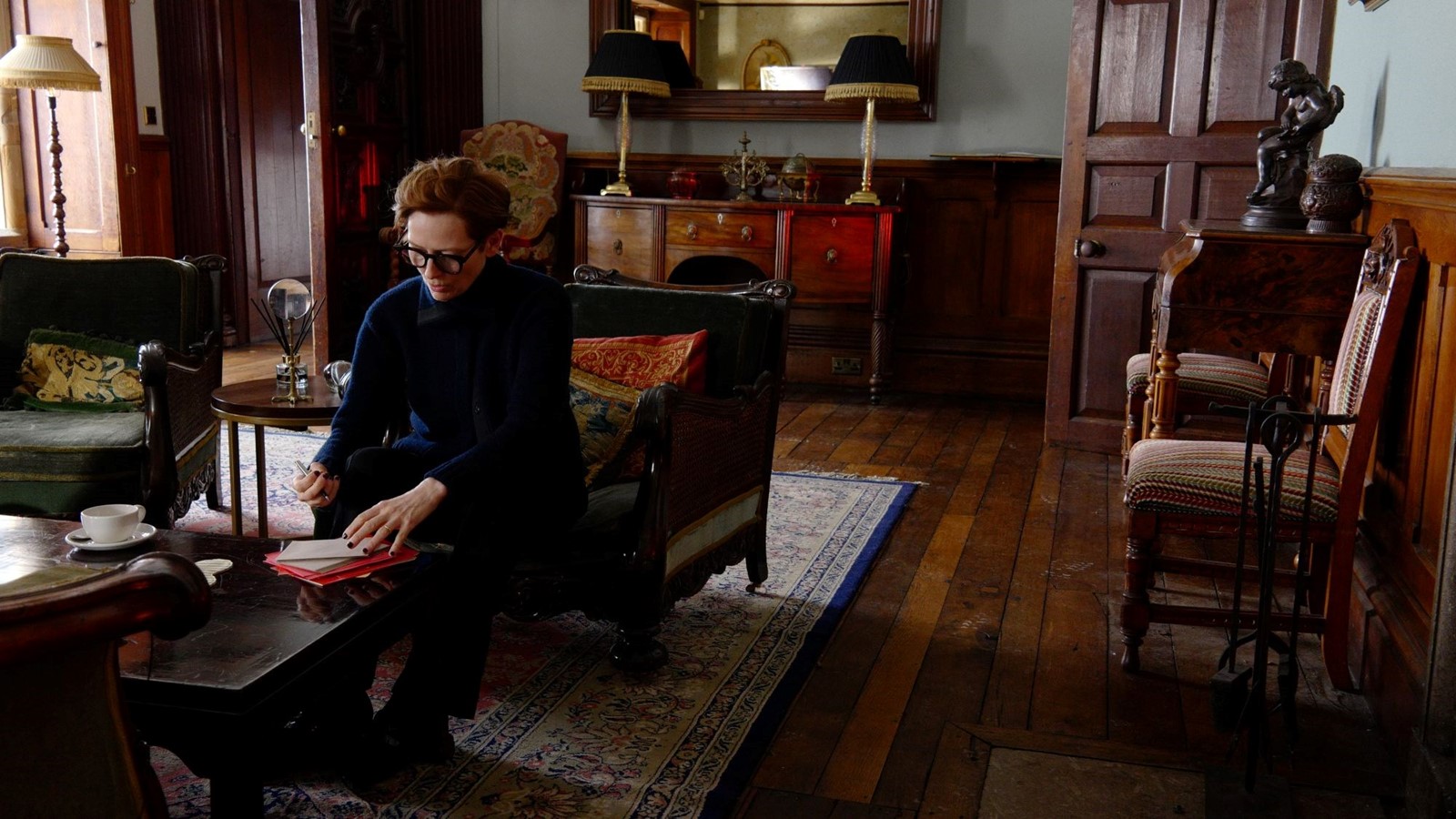
VC: Do you think people need to see The Souvenir films before seeing The Eternal Daughter?
JH: I hope it’s possible to see The Eternal Daughter and just to see it as a standalone film. So I don’t think it’s a necessity, but maybe it can enrich the experience, watching part one and part two. I’ve heard different views about that. But actually, what I’m interested in is all of the films I’ve made connecting, because sometimes I think of The Eternal Daughter having a greater connection with Exhibition, for example, because they’re both haunted house films. So yes, I like to see all of the films – which I don’t watch again after I’ve made them – as interconnected in some way.
VC: Why don’t you watch your films after you’ve made them? Don’t you have to watch the final edit at the premiere?
JH: I even avoid the premiere if I can. [Laughs]. But I watched The Souvenir Part II when it was showing in Cannes – it was polite protocol to watch it with everyone else – and it was unbearable. When it finished, I wanted to go straight back into the cutting room and change certain things, so it’s a really dangerous thing for me to do. I couldn’t let go of it for weeks and had endless discussions with my editor about whether to go back in and make these changes. Ultimately, I’m glad that I didn’t. There’s something about the intensity of when you’re making a film. There’s a rhythm which breaks when you finish; to go back when you’re not in that rhythm anymore … I’m not sure if that works.
“As much as I want my work to be cathartic on some level, I’m not sure if that’s possible” – Joanna Hogg
VC: Just like The Souvenir films, The Eternal Daughter is so preoccupied with that act of filmmaking itself. What compels you to put the creative process on show?
JH: I’m just so fascinated by it, and [it’s] because I’m always grappling with it myself. Again, it’s one of those things that’s in the forefront of my mind and that I’m always experiencing, so it seems obvious to me that there would be something of that going into the work. I’m always trying to find new ways of working and I’m always looking at how I work. It’s not about becoming better, but I’m just so fascinated with the creative process.
I went to see the Philip Guston exhibition at Tate Modern, and I’m so interested in his work. Often when I look at work by painters, filmmakers or musicians, it’s the sketches that I’m most interested in because you can see the process, you can see something in motion. And when it’s a completed piece of work, it’s not always so alive for me.
VC: In The Eternal Daughter, you’re basically watching Rosalind write the film that becomes The Eternal Daughter – so it feels very alive.
JH: Putting it that way, as you have just done, all of the films are about what I’m doing, transposed.
VC: Will we be seeing Julie again in any of your upcoming films?
JH: Having said earlier that the work Tilda and I did on The Eternal Daughter was a one-off, I didn’t mean that’s the end of that journey, and hopefully not the end of working with Tilda and Honor at a later point. But right now, I’m in a slightly dreamy kind of moment of not quite knowing what’s next.
The Eternal Daughter is out in UK cinemas now.
